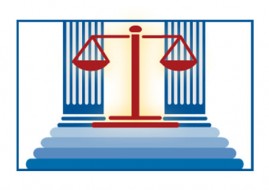Three Case Digests: July 2001
By Lazar Emanuel [Originally published in NYPRR July 2001]
Non-Client Defendant May Move to Disqualify Counsel
The Brickman law firm represented Client Matthews in an age discrimination claim against his former employer, defendant’s predecessor in interest. The claim was settled. Client Skidmore, a fellow employee of Matthews, retained the Brickman firm on a claim which was essentially similar to the Matthews claim The Skidmore claim did not settle and suit was commenced. [See, Skidmore v. Warburg Dillon Read LLC, f/d/b/a UBS Securities LLC, 99 Civ. 10525 (NRB) S.D.N.Y. 2001 U.S. Dist. LEXIS 5101.]
Plaintiff Skidmore relied for his claim in great part on information obtained from Matthews during their employment. But when Matthews was deposed, he disputed the testimony given by Skidmore.
Defendant moved to disqualify the Brickman firm though it had never been a client of the firm. Defendant relied on Canon 4 of the ABA Model Code of Professional Responsibility which states: “A lawyer should preserve the confidences and secrets of a party.” Defendant argued, in effect, that the Brickman firm could not represent both Skidmore and Matthews without violating this rule.
The Court held that defendant had standing to make this motion even though it was not a former client. “Ample precedent indicates that a party who is not part of the alleged conflict has standing to make a disqualification motion.”
On the merits, however, the Court found no basis to support defendant’s motion. Attorney Brickman denied that he had disclosed to Skidmore any confidences received from Matthews. Matthews may even have referred Skidmore to the firm. The Court also rejected defendant’s argument that Brickman had violated Canon 5 of the ABA Code.
Two Cases on Malpractice and ‘Continuous Representation’
Defendant lawyer was retained to pursue plaintiffs’ contract claim. He failed to take any action and the statute of limitations on the contract claim expired. Plaintiffs made many calls to defendant after their claim was barred inquiring how the case was going, but defendant failed to return any of these calls. The calls continued beyond the end of the three-year tort malpractice limitation imposed by CPLR 214(6).
The Court of Appeals applied the “continuous representation” doctrine to extend the period of defendant’s malpractice liability beyond the three-year statutory limitation on legal malpractice claims. Representation would be deemed to continue until at least the first date upon which plaintiffs called to inquire about the progress of their claims -and, further, until the plaintiffs had “reasonable notice of defendant’s withdrawal.” [Shumsky v. Eisenstein, ___ N.Y.2d ___(5/10/2001).]
In contrast, in Elitzer v. Shlesinger, Arkwright & Garvey (Sup. Ct., Third Dept.), Justice Keegan recently declined to find the elements of continuous representation. Defendant law firm was engaged by plaintiff’s general counsel to provide advice on the federal registration of three trademarks.
After finding that a claim of legal malpractice could be based on principles of third-party-beneficiary liability and that the liability in this case would therefore be measured by the six- year contract limitations period instead of the three-year tort period, the court found that the services rendered by defendants with respect to one of plaintiffs’ claims had been intermittent rather than continuous. As to that claim, the continuous representation doctrine did not apply and the claim was time barred.
Counsel May Not Intervene to Protect Charging Lien
The Butler law firm had represented CBJ Corporation in a protracted and difficult litigation. In the midst of trial, CBJ discharged Butler and retained new counsel, who continues to represent CBJ. Upon discharge, Butler moved to fix its charging lien upon CBJ’s ultimate recovery. A magistrate judge fixed the lien at $2,934,695.
CBJ’s new counsel procured a sizeable verdict after trial, but the case was remanded on appeal, in part, on the issue of damages. The litigation continues. After its dismissal, the Butler firm continued to help CBJ by drafting memoranda, prepping substitute counsel, and procuring a tax expert to support CBJ’s claims.
Concerned that its charging lien was being jeopardized by CBJ’s lack of financial support for new counsel, Butler moved to intercede in the principal action under Rule 24(a) of the Federal Rules of Civil Procedure. Butler argued that its lien gave it an interest in the property which was the subject of the action, that its interest might be impaired without its intervention, and that its interest was not being protected by the other parties.
The Court refused to decide whether the charging lien of a discharged lawyer “is a sufficient interest to support intervention as of right into a client’s underlying action,” although it recognized that there were merits on both sides of the argument. The Court discussed in detail the arguments pro and con.
However, the Court rejected Butler’s motion to intervene because had the firm waited too long before attempting to intercede and because Butler was still being allowed to cooperate in the litigation with successor counsel. [Butler, Fitzgerald & Potter v. Sequa Corp., No. 00-7025, (2d Cir. 2001), 2001 U.S. App. LEXIS 10645.]
Lazar Emanuel is the Publisher of NYPRR.
DISCLAIMER: This article provides general coverage of its subject area and is presented to the reader for informational purposes only with the understanding that the laws governing legal ethics and professional responsibility are always changing. The information in this article is not a substitute for legal advice and may not be suitable in a particular situation. Consult your attorney for legal advice. New York Legal Ethics Reporter provides this article with the understanding that neither New York Legal Ethics Reporter LLC, nor Frankfurt Kurnit Klein & Selz, nor Hofstra University, nor their representatives, nor any of the authors are engaged herein in rendering legal advice. New York Legal Ethics Reporter LLC, Frankfurt Kurnit Klein & Selz, Hofstra University, their representatives, and the authors shall not be liable for any damages resulting from any error, inaccuracy, or omission.
Related Posts
« Passing the Baton When a Lawyer Is Disqualified ABA Commission Rejects Law Firm Discipline »













